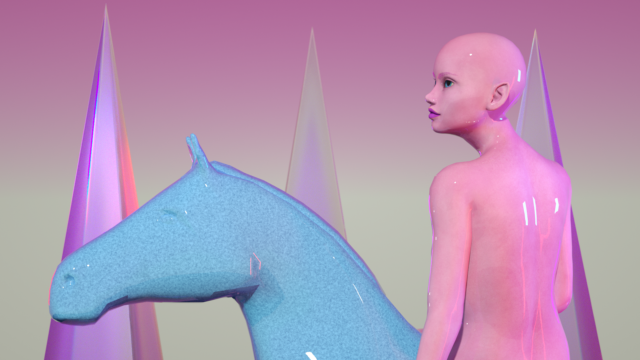
As part of Data Stories, the ODI’s Data as Culture programme, working with BOM (Birmingham Open Media) commissioned artists in Birmingham to explore communication of data through art and storytelling and contributed a unique perspective to the project. The end result is a stunning – and fun – artwork which uses game mechanics to communicate the experiences of a community by interacting with a dataset.
Computer science meets art
Over three years we are researching how people engage with data beyond visualisations, graphs or infographics and how to bring data closer to people through art, games, and storytelling; making data more personally relevant and more interactive. The project has produced interesting outputs: some theoretical, some technological tools, and now it wanted to delve into working with artists in participation with members of a local community to produce a ‘data-experience’.
The ODI was particularly interested in exploring creative narratives of data from a positive perspective, using local or civic data which reflects and affects a community. Data which may be used to fight for, rather than against, a concern or idea. In response BOM proposed to co-design and develop something together with members of the neurodiverse community. BOM being a centre for art, technology and science that specialises in education and exhibitions on issues in digital culture and science which impact human lives, with a particular interest in neurodiversity and technology.
A playable artwork that communicates experience
The resulting artwork “Mood Pinball”, is a full-size pinball machine with a digital display. The artists, Ben Neal and Harmeet Chagger-Kahn with Edie Jo Murray, have playfully re-imagined how city-wide data might be used by an individual to find their comfort zones and improve their experience of the city. The goal of Mood Pinball is to keep the ‘Mood-o-Meter’ happy by responding to noise-level data revealed by gameplay.
The otherworldly qualities of the highly stylised graphics and saturated colours are based on neurodiverse artist Edie Jo Murray’s experience that autistic people can feel like aliens on this planet. Edie’s sensitivity to noise, which has an impact on how well she feels at different city locations, is part of this. Data about noise levels in public spaces is not publicly available, so the data in this artwork was synthesised by computer scientists at Southampton University. Mood Pinball acts as a reminder that people as well as businesses need to use information and data to understand the world and make decisions about our lives.
Challenging our notions of hierarchy
During early workshops and creation of the work we had our presumptions challenged in surprising ways. We learned that the organisation of data isn’t as objective as we assumed. Neuro-typical notions of ranking, hierarchy, ordering, filtering and labelling – as data is often organised in traditional databases – do not always work in the neuro-diverse experience. Instead all kinds of observations and experiences may be considered equivalent, which becomes a source of difficulty in a world that forces or assumes hierarchy and more easily accepts ambiguity.
This raises interesting questions about missed opportunities in the neuro-typical world by sticking rigidly to structure and categories, or by filtering out all but the top or bottom ten. As a response, the pinball machine introduces a non-hierarchical way to interact with a dataset and invites the player to draw their own observations and conclusions. In this way we encounter the diversity though the disorder.
Mood Pinball on tour
Mood Pinball has been on proud display at several events and exhibitions this year.
BOM’s own exhibition Hacked! Games Re-designed asks how artists and innovators are changing the way we play computer games. Visitors could experience innovative devices that offered radically different ways to interact ‘beyond fingers and thumbs’. For example, Microsoft’s new accessible controller, low-fi ‘hacked’ alternatives, instruments re-invented by artists and of course the Mood Pinball machine. The exhibition intended to capture ‘a unique moment in time when games designed from alternative all-ability perspectives could lead us towards an altogether more immersive future.’
In September BOM and the ODI team were especially proud to join other artists, engineers and technologists at the V&A Digital Design Weekend. This annual exhibition coincides with the London Design Festival and is specifically interested in the intersection of technology and design, this year’s theme being Heritage and Identity in the Digital Age. It was the ideal environment to have thought-provoking conversations with visitors about a host of topics including the format of the pinball machine as a data experience; changes in their awareness of the neurodiverse perspective as revealed by the data; to the availability of other datasets which could both communicate and improve their own lives.
In November 2019, the ODI’s own ‘mood-o-meters’ were boosted when ODI co-founder Tim Berners-Lee could take some time out during the ODI Summit 2019 to play a game. This year’s summit theme was “Impact”, and we were especially pleased to see Mood Pinball spark rich conversations with people outside the normal data community about the impact of data – and its availability – on diverse communities.


